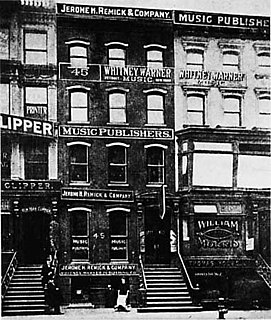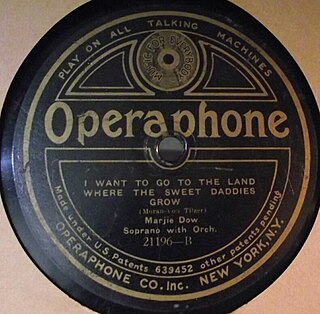
Phonograph cylinders are the earliest commercial medium for recording and reproducing sound. Commonly known simply as "records" in their era of greatest popularity, these hollow cylindrical objects have an audio recording engraved on the outside surface, which can be reproduced when they are played on a mechanical cylinder phonograph. In the 1910s, the competing disc record system triumphed in the marketplace to become the dominant commercial audio medium.
Collins & Harlan, the team of Arthur Collins and Byron G. Harlan formed a popular comic duet between 1903 and 1926. They sang ragtime standards as well as what were known as "Coon songs" – music sung by white performers in a black dialect. Their material also employed many other stereotypes of the time including Irishmen and farmers. Fellow recording artist Billy Murray nicknamed them "The Half-Ton Duo" as both men were rather overweight. Collins and Harlan produced many number one hits with recordings of minstrel songs such as "My Gal Irene", "I Know Dat I'll be Happy Til I Die", "Who Do You Love?" and "Down Among the Sugarcane". Their song "That Funny Jas Band from Dixieland", recorded November 8, 1916, is among the first recorded uses of the word "jas" which eventually evolved to "jass", and to the current spelling "jazz".

Arthur Francis Collins was an American baritone who was one of the most prolific and beloved of pioneer recording artists, regarded in his day as "King of the Ragtime Singers".

Byron George Harlan was an American singer from Kansas, a comic minstrel singer and balladeer who often recorded with Arthur Collins. The two together were often billed as "Collins & Harlan".
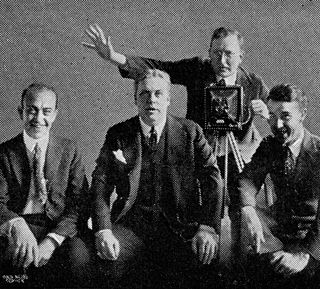
The Peerless Quartet was an American vocal group that recorded in the early years of the twentieth century. They formed to record for Columbia Records, where they were credited as the Columbia Quartet or Columbia Male Quartet. From about 1907, when they began to record for record labels other than Columbia, they were more widely known as the Peerless Quartet.

Ada Jane Jones was an English-American popular singer who made her first recordings in 1893 on Edison cylinders. She is among the earliest female singers to be recorded.
"Hesitation Blues" is a popular song adapted from a traditional tune. One version was published by Billy Smythe, Scott Middleton, and Art Gillham. Another was published by W.C. Handy as "Hesitating Blues". Because the tune is traditional, many artists have taken credit as writer, frequently adapting the lyrics of one of the two published versions. Adaptations of the lyrics vary widely, though typically the refrain is recognizably consistent. The song is a jug band standard and is also played as blues and sometimes as Western swing. It is cataloged as Roud Folk Song Index No. 11765.

"American Patrol" is a popular march written by Frank White (F.W.) Meacham in 1885. It incorporates both original musical themes by Meacham and melodies from American patriotic songs of the era such as "Columbia, the Gem of the Ocean" and "Dixie." Composed for piano, it was then arranged for wind band and published by Carl Fischer in 1891. Copyright was assigned to Meacham's widow, Cora, in 1912 and renewed in 1919.

"Chicken Reel" is a dance tune. It was composed and published in 1910 by Joseph M. (Michael) Daly (1883–1968), with copyright registered on October 7. Joseph Mittenthal added lyrics three months later, and the texted version was copyrighted on January 12, 1911.

Eleonora de Cisneros , was an American opera singer. Cisneros was a major backer towards the sale of Liberty bonds during World War I. She was a singer for the Metropolitan Opera company. Cisneros toured the United States during World War I singing in plays to raise funds for the Red Cross.

"(You're My Heart's Desire, I Love You) Nellie Dean" is a sentimental ballad in common time by Henry W. Armstrong, published in 1905 by M. Witmark & Sons of New York City. The original sheet music is scored in B-flat major for voice and piano and marked andante moderato.
"The Other Day I Met a Bear" is a traditional American camp song, sung as an echo song.
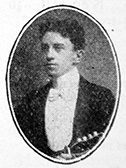
Samuel Siegel was an American mandolin virtuoso and composer who played mandolin on 29 records for Victor Records, including 9 pieces of his own composition and two that he arranged. Siegel was the first mandolinist to record on Emile Berliner's phonograph disk-records. He was labeled "America's Greatest Mandoline Virtuoso" and "The King of the Mandolin" in the May 1900 Banjo World.
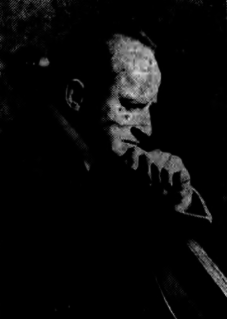
Hans Kronold was a Jewish-born Polish cellist, composer, educator, and a member of symphony orchestras of New York and Boston. He was the first musician to make cello recordings on phonograph cylinders for Gianni Bettini.
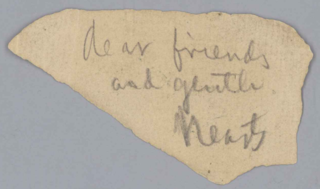
The Stephen Foster Collection and archives are the largest collection of primary source materials on the life and work of Stephen Foster. The collection consists of documents and other items of historical interest related to the life and work of Stephen Foster. It resides in the Stephen Foster Memorial at the University of Pittsburgh. Josiah K. Lilly donated an almost complete set of first edition music. The memorial houses sketchbooks and other memorbilia The process of assembling the collection was methodical, well-organized and funded by various non-governmental and governmental sources. The cost of maintaining the collection is partially funded by the University of Pittsburgh.
Carey Elmore Morgan Jr., known professionally as Carey Morgan, (1884-1960) was an American composer and Vaudeville producer during the 1900s. Throughout his career, he collaborated with various songwriters and performers including, L. Wolfe Gilbert, Charles McCarron, and Arthur Monday Swanstrom.
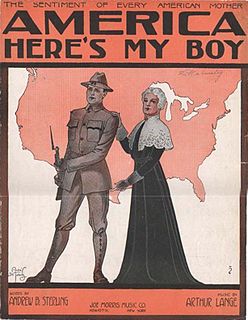
"America, Here's My Boy" was one of the most popular songs in the United States in 1917. The lyrics were by Andrew B. Sterling and the music by Arthur Lange; the publisher was the Joe Morris Music Co. of New York City. Written at the peak of the preparedness movement and copyrighted on February 16, 1917, it was widely regarded as a reply to "I Didn't Raise My Boy to Be a Soldier," the pro-neutrality hit published two years before. After the country entered the war it became a pervasive expression of commitment, with many performances by amateurs in venues from minstrel shows to benefit concerts. It was a favorite of the troops at training camps, and in October it was sung to Josephus Daniels, the Secretary of the Navy, by 12,000 sailors at the Great Lakes Naval Training Station.


